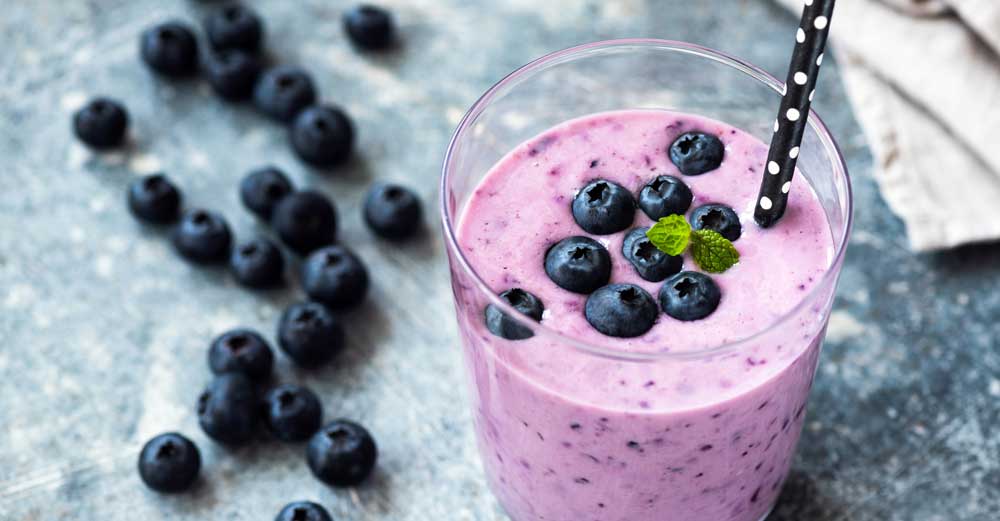There’s a lot of contention out in the world about whether or not frozen smoothies are good for you, so we thought we would offer our thoughts on this divisive subject in this blog! We’re going to compare the health value of frozen smoothies to those that have been pre-made – ready to dive in?

What do we mean by frozen smoothies?
When it comes to Love Struck frozen smoothies, we mean drinks that have been prepackaged with fruits and veggies and are ready for you to use. As soon as we pick the fruit from the trees or the veggies out of the ground, we set about freezing them. And multiple studies have shown that frozen fruit and vegetables actually contain more nutrients than those that are fresh. All that’s left for you to do is to add the bags to some coconut water blend and apple juice, and you can enjoy many of our delicious frozen smoothies.
What about pre-made smoothies?
A pre-made smoothie is a drink that you’re likely to find on the shelf of a supermarket. And while they’re usually super tasty and good if you’re in a hurry, they typically contain a few naughty ingredients that aren’t found in frozen smoothies.
Are frozen smoothies healthy?
We always pick our fruit and veg when it is at its peak ripeness, and this makes the smoothie even more healthful. Studies indicate that freezing freshly picked fruits and vegetables enables them to retain a similar amount of vitamin, mineral, and phytochemical content to those that are fresh. Interestingly, a specific study highlighted that the Vitamin C content in blueberries, corn, and green beans was higher in the frozen produce. For the likes of carrots, spinach, strawberries, broccoli, and peas, the vitamin levels were roughly the same in frozen and fresh produce.
Are pre-made smoothies healthy?
Because we make such delicious frozen smoothies, you might accuse us of bias when looking at pre-made smoothies. But the truth is that we’ve done our research into these smoothies. The fundamental problem with pre-made smoothies is that there is an excessive amount of sugar (sweetened juice, bananas, honey, sugary frozen yoghurt, etc.). The fat content is also high as a direct result of the frozen yoghurt that makes its way into most pre-made smoothie recipes. And while you might consider avoiding yoghurt based smoothies altogether, doing so will cheat yourself of protein, even if it does save you some calories. Protein will help keep you full until your next meal.
What is the reason that pre-made smoothies have so much sugar?
Almost all frozen smoothies contain bananas because they’re one of the easiest additions to smoothies due to the body, nutrients, and sweetness that they add. But they’re also much higher in sugar than other fruits.
How do we avoid high sugar levels in our frozen smoothies?
Our trick is to use a lovely variety of fruits to provide depth and taste to our smoothies. For instance, half an avocado is perfect for some extra creaminess. It also provides you with fibre, antioxidants, potassium, and B-complex vitamins. And although avocados contain lots of fat, they are rich in oleic and linoleic acids that effectively reduce LDL cholesterol and increase HDL cholesterol (the healthy kind). They’re also a super fruit when it comes to suppressing hunger, and you don’t need to worry about wasting them because they freeze really well.
Our best tip for protein smoothies
When you’re creating your own smoothie recipe, consider adding a scoop of plain yoghurt, a sprinkle of flaxseed, or a spoonful of unsweetened nut butter if you’re hoping to pack some extra protein. You can also switch from fruit juice to coconut water as the smoothie’s base, as it’s rich in both electrolytes and potassium.
Frozen smoothies v pre-made smoothies: The verdict?
There’s no doubt about it – frozen smoothies are winning outright! The numbers don’t lie, and the odds are stacked against pre-made smoothies.
Other studies regarding the health benefits of frozen smoothies
One study found that a particular type of blueberry had 29% more antioxidant activity following three weeks of cold storage. A separate piece of research discovered that frozen blueberries only started to lose their phenolic compounds after ninety days, while fresh blueberries started losing them after ten.
This is probably because fresh produce starts to lose some of its nutritional value when it sits out for too long after its harvest date. This is stimulated by enzymatic activity and the process of oxidation. Be it transit time between farms, distribution to supermarkets and greengrocers, and then the time the fruit spends sitting out on the shelves, it’s no surprise that it starts losing some of its nutritional value. Who doesn’t leave their fruit and veg sitting out until the last minute before tucking in, after all? The more time you leave your produce before eating it, the more the air and light cause changes in its composition.
The bottom line: frozen smoothies are healthy!
Here’s the thing – frozen produce tastes great, is more nutritious, lasts longer, and costs less! You will find that drinking smoothies are an excellent way of increasing your consumption of fruits and vegetables, which will ensure you get your essential vitamins, fibre, minerals, and antioxidants. Therefore, continue enjoying your homemade frozen smoothies – they will help you improve your health and wellbeing!
Leave a Reply